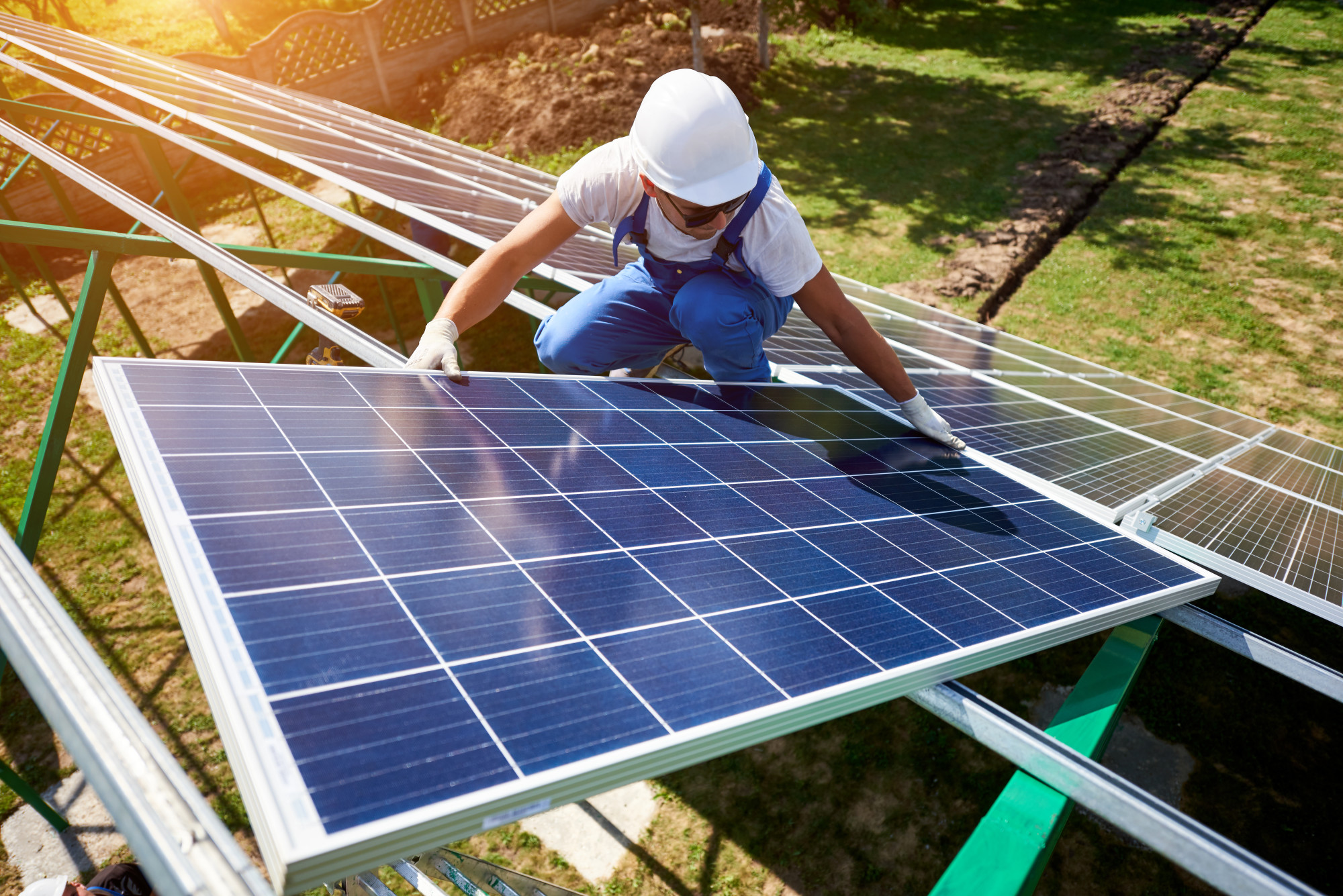Did you know that more than two million United States home have solar panels? Solar power has become significantly more popular, affordable, and fashionable in the last decades. But how do solar panels work, and what are the benefits of installing them?
If you’re curious to jump into the world of renewable energy, we’re here to guide you. Read on to learn a brief summary of how solar panels function. We’ll also delve into some of the countless benefits of this clean energy source.
Contents
How do Solar Panels Work?
The best place to start is looking at how solar panels work. Solar panels are a simple function and one that you’ve likely seen in place.
One common every-day solar panel is solar-powered lights. Many streetlights have a small solar panel on the top. They charge throughout the day and use this electricity through the night to keep the streets lit.
A smaller version of this works for garden-sized lights. Some gadgets such as rechargeable battery stations will use solar panels to generate electricity. These are particularly popular among people that enjoy camping.
Converting Sunlight
Solar panels function in a refreshingly simple way. The first step is for the panel to be in direct sunlight. Indirect sunlight sometimes functions, but the stronger the sunlight, the better the power.
The cells inside of a solar panel are PV cells. These cells create electrical charges as a result of absorbing the solar rays.
Once the charge is generated, it moves in response to an internal electrical field. The field causes the solar panel to send the generated electricity to its destination.
Powering Homes
Currently, one of the most common places to find solar panels are on the roofs of homes. Here, these panels are hooked directly into the house’s electrical systems.
Electricity that is generated is sent toward the home. When the home needs electricity for lights, appliances, or any other reason, this power is prioritized.
Some homes have minor energy needs and can thrive solely off of solar panels. Others may use solar panel as a secondary power source to supplement their main power.
It’s also common for solar power to go into a battery instead of the home. That way, the battery can store the energy for use later.
Batteries are more common for large enterprises or energy generation. Many solar banks will charge the batteries for distribution amongst the grid. As a result, there’s never a time when power isn’t flowing.
Installing Solar Panels
Now that we know more about how they function, how does one install solar panels? Installing solar panels is simple for professionals and some prefer to DIY the task.
Solar panels should always be installed on the highest, sunniest point of your building. If you install them in the shade or under cover, they’ll generate significantly less power.
Most solar panels are installed on the roofs of buildings in direct sunlight. You should ensure that the area is clear of obstructions. Trees are common obstructions that should be trimmed back to allow direct light.
Another maintenance requirement is regularly cleaning the solar panels. Solar installers will instruct you on how frequently you should clean your panels.
If you let your panels get dirty, they may receive less sunlight. A thick layer of dust and dirt will let less light hit the cells. If they get dirty enough, your solar panels may fail to function.
Benefits of Solar Panels
With a better understanding of solar panels, we may wonder what the benefits are. Why should you take the cost and hassle of solar installation instead of using your city’s power grid?
There are countless benefits, but we’ve arranged the most dominant. Read on to learn about the many benefits of solar power.
Cleaner Energy
The primary benefit that causes many people to switch to solar is the cleaner energy. Once installed, your solar panels generate electricity with virtually no carbon emissions.
When your energy source is the sun, there’s no pollution. Wind power is famous for having a similar benefit.
That said, critics of solar panels are quick to point out that they still cause emissions. Solar panels will cause emissions during their manufacturing process, as nearly all products do.
From there, the panels are astronomically cleaner than natural gas, coal, or similar dirty fuels. You can power your home knowing you’re helping to keep the earth healthy.
Net Metering
Another solid benefit that’s available to many solar panel owners is net metering.
As you generate electricity, you may not use all of what’s available. If you don’t have a battery, that energy will flow back into the grid.
When this energy enters the grid, your neighbors will use it before pulling from the city. As a result, your neighbors receive clean energy and your utilities provider doesn’t need to spend money generating the energy.
In many places, the utility company will compensate you for this saved energy. Compensation may come in the form of a bill credit for you. It’s a wonderful way to save money on your way to saving the planet.
Lower Bills
Net metering isn’t the only way to save money. Your home prioritizes you solar panels when using energy. The result of this is that your power company didn’t have to spend resources on you.
Since the power doesn’t reach your home, the utility company won’t charge you. Every watt your solar panels generate is money in your pockets when it comes time to pay the bills. Due to this, your panels will pay for themselves over time.
Switching to Solar
How do solar panels work and why should you switch? Solar panels are simple and convert the direct sunlight into energy for your home. The energy generated by solar panels is clean and helps to save money for you and your community.
For more informative reads, be sure to browse our extensive site.

